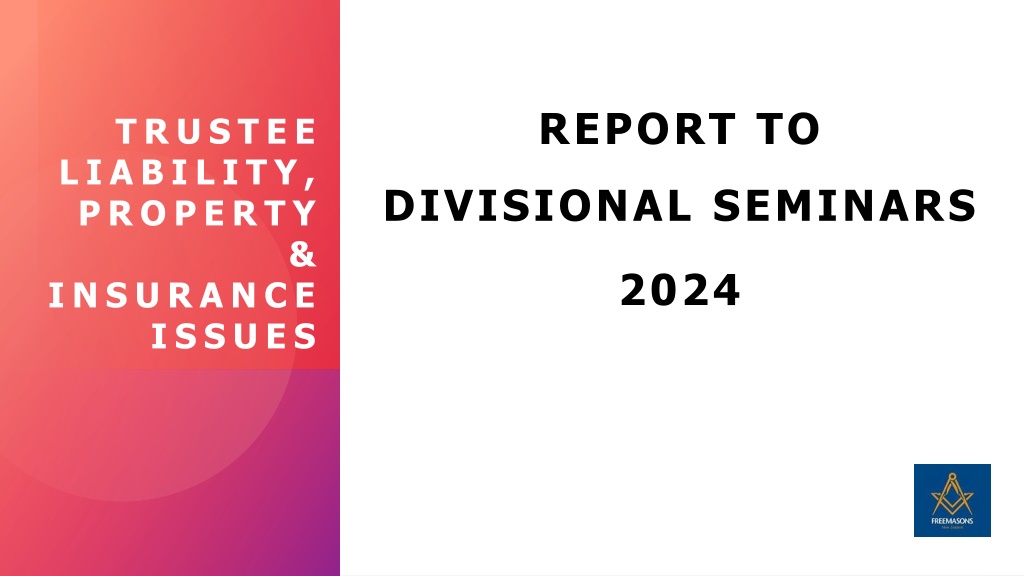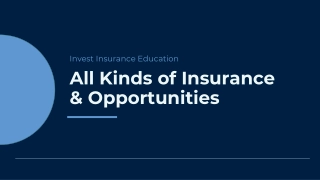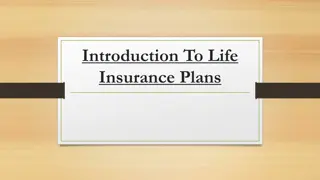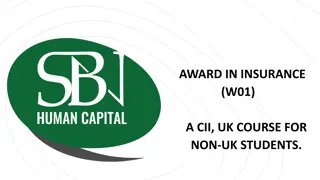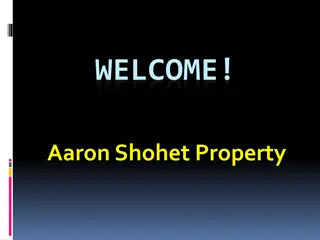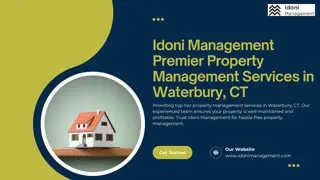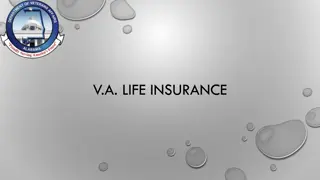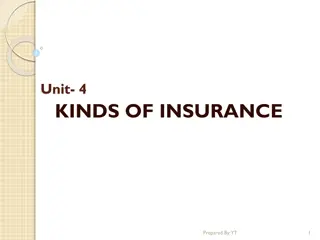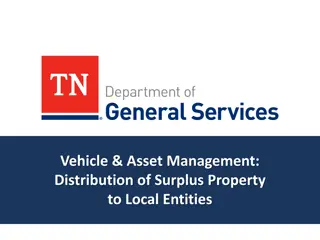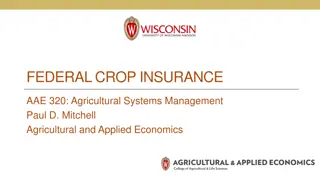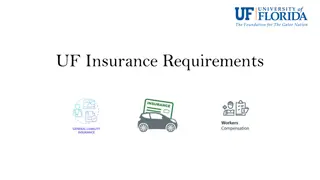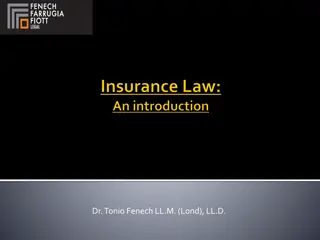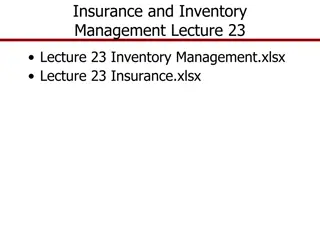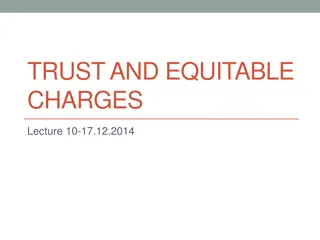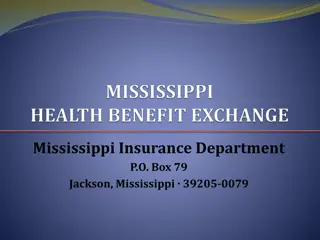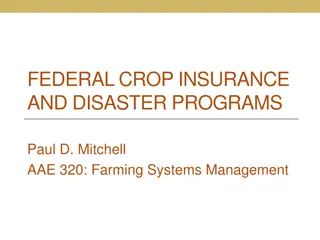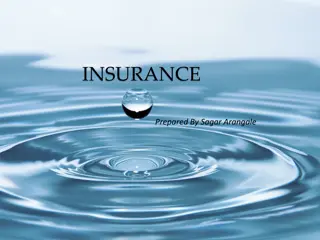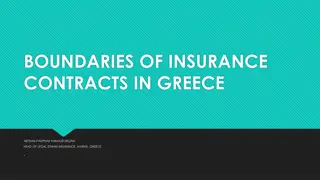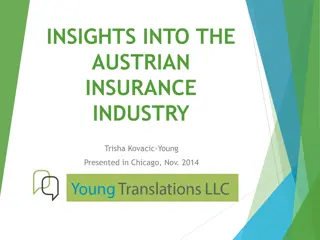Trust, Property Division, and Insurance Issues
Explore the interconnected principles of trust, property, and insurance, starting with how a trust works and its application in lodges. Learn about winding up trusts in family and charitable contexts, and the implications in Masonic trusts. Discover rules for avoidance of doubt as per the Book of Constitution.
Download Presentation

Please find below an Image/Link to download the presentation.
The content on the website is provided AS IS for your information and personal use only. It may not be sold, licensed, or shared on other websites without obtaining consent from the author.If you encounter any issues during the download, it is possible that the publisher has removed the file from their server.
You are allowed to download the files provided on this website for personal or commercial use, subject to the condition that they are used lawfully. All files are the property of their respective owners.
The content on the website is provided AS IS for your information and personal use only. It may not be sold, licensed, or shared on other websites without obtaining consent from the author.
E N D
Presentation Transcript
REPORT TO T R U S T E E L I A B I L I T Y , P R O P E R T Y DIVISIONAL SEMINARS & 2024 I N S U R A N C E I S S U E S 1
T R U S T E E L I A B I L I T Y , P R O P E R T Y & I N S U R A N C E I S S U E S Starting principles: All 3 issues are intrinsically linked together; You can t consider one issue without considering the effect of or on the other 2, but first; You must understand how a trust works 2
HOW A TRUST WORKS. The Trust Document Often referred to as the Trust Deed The Settlor(s) The Trustee(s) The Beneficiaries sets up the trust and settles property (assets) on the trust manage the assets of the trust for the beneficiaries members who the Settlor(s) choose to benefit from the assets 3
S O , H O W D O E S T H I S A P P L Y T O A L O D G E ? The Trust Document in the case of a lodge, the By-Laws The Settlor The Trustee(s) The Beneficiaries The Grand Lodge of Freemasons of New Zealand Trustee Act 1903 the Trustees of the lodge elected under the lodge By-Laws all the members of the lodge 4
WHAT HAPPENS WHEN A TRUST IS WOUND UP? In the case of a family trust, normally the assets of the trust would be distributed to the beneficiaries. In the case of a charitable trust, the trust deed normally provides for the assets to settled on another charitable trust with similar aims and objectives . 5
W H A T H A P P E N S W H E N A M A S O N I C T R U S T ( A L O D G E ) I S W O U N D U P ? In a masonic context, the winding up of a trust is equivalent to a lodge either: Electing to hand in its charter (rule 117 of the BoC), or; Being dissolved as membership is less than 7 (rule 118 of the BoC). When this happens, any landed interests (including any funds from the sale of any landed interests ) held by the lodge, are transferred back to the Trustees of Grand Lodge for the benefit of the Building Fund. 6
S O , F O R T H E A V O I D A N C E O F D O U B T Rule 2 (m) of the Book of Constitution ( BoC ) states: Rule 120 of the BoC states: So, please remember this as there will be frequent references to Grand Lodge throughout this presentation. 7
A L L T R U S T S ( I N C L U D I N G L O D G E T R U S T S ) A R E G O V E R N E D B Y T H E T R U S T S A C T 2 0 1 9 under which Trustees have 2 sets of duties: Five (5) Mandatory Duties, and; Ten (10) Default Duties 8
N O W L E T ' S L O O K A T T H E M A N D A T O R Y D U T I E S A N D W H A T T H E Y M E A N F O R L O D G E T R U S T E E S A duty to know the terms of the trust which, in a masonic context means .. You must know your lodge By-Laws 9
N O W L E T ' S L O O K A T T H E M A N D A T O R Y D U T I E S A N D W H A T T H E Y M E A N F O R L O D G E T R U S T E E S A duty to act in accordance with the terms of the trust which, in a masonic context means .. You must act according to your lodge By-Laws 10
N O W L E T ' S L O O K A T T H E M A N D A T O R Y D U T I E S A N D W H A T T H E Y M E A N F O R L O D G E T R U S T E E S A duty to act honestly and in good faith, which means .. You must deal with people in an open manner and not mislead anyone 11
N O W L E T ' S L O O K A T T H E M A N D A T O R Y D U T I E S A N D W H A T T H E Y M E A N F O R L O D G E T R U S T E E S A duty to act for the benefit of the beneficiaries of the trust or to further the permitted purpose of the trust, which means .. You must act for the benefit of all lodge brethren or for any purpose permitted by the By-Laws 12
N O W L E T ' S L O O K A T T H E M A N D A T O R Y D U T I E S A N D W H A T T H E Y M E A N F O R L O D G E T R U S T E E S A duty to exercise powers for the proper purpose, which means .. You must not exercise any power for your own personal benefit or for any purpose not permitted by the lodge By-Laws 13
SO, WHAT ARE THE DEFAULT DUTIES AND WHAT DO THEY MEAN FOR LODGE TRUSTEES A general duty of care, which means .. You must act in the best interest of all lodge brethren 14
SO, WHAT ARE THE DEFAULT DUTIES AND WHAT DO THEY MEAN FOR LODGE TRUSTEES A duty to invest prudently, which means .. You must exercise the care and skill that any other person would exercise in a similar position, when making investment decisions 15
SO, WHAT ARE THE DEFAULT DUTIES AND WHAT DO THEY MEAN FOR LODGE TRUSTEES A duty to not to exercise power for your own benefit, which means .. Exactly what it says!!!! 16
SO, WHAT ARE THE DEFAULT DUTIES AND WHAT DO THEY MEAN FOR LODGE TRUSTEES A duty to consider the exercise of power, which means .. Be aware of your lodge By-Laws and only make decisions according to those By-Laws 17
SO, WHAT ARE THE DEFAULT DUTIES AND WHAT DO THEY MEAN FOR LODGE TRUSTEES A duty not to bind or commit trustees to future exercise or discretion, which means .. Not to commit any future trustees of the lodge to any power that is not permitted by the By-Laws 18
SO, WHAT ARE THE DEFAULT DUTIES AND WHAT DO THEY MEAN FOR LODGE TRUSTEES A duty to avoid any conflict of interest, which means .. Not to take part in any deliberations, or votes, where your personal interests or any duty you owe to another entity are likely to clash 19
SO, WHAT ARE THE DEFAULT DUTIES AND WHAT DO THEY MEAN FOR LODGE TRUSTEES Here are some examples of potential conflict of interest : A lodge trustee is also a director of a company in which the lodge holds shares; A lodge has a contract with an entity in which a trustee has an interest; A lodge engages a family member of a trustee to undertake paid work for the lodge. 20
SO, WHAT ARE THE DEFAULT DUTIES AND WHAT DO THEY MEAN FOR LODGE TRUSTEES A duty of impartiality, which means .. You must treat all brethren of your lodge equally 21
SO, WHAT ARE THE DEFAULT DUTIES AND WHAT DO THEY MEAN FOR LODGE TRUSTEES A duty not to profit, which means .. You must avoid conflict between your interests as a trustee and the interests of the brethren of your lodge, act impartially in relation to the brethren and not make a profit from your trusteeship 22
SO, WHAT ARE THE DEFAULT DUTIES AND WHAT DO THEY MEAN FOR LODGE TRUSTEES A duty to act for no reward, which means .. Exactly that!!! 23
SO, WHAT ARE THE DEFAULT DUTIES AND WHAT DO THEY MEAN FOR LODGE TRUSTEES A duty to act unanimously, which means .. Exactly that!!! 24
WHAT HAPPENS WHEN A TRUSTEE RETIRES, RESIGNS OR DIES? Liability for future events ceases, but; Liability for historic events remains and may even be binding on the trustee s estate; Some liabilities may be limited by statute (law); Some liabilities may be covered by insurance. 25
A N D O N E L A S T V E R Y I M P O R T A N T P O I N T . . . Section 45 of the Trusts Act 2019 requires each trustee to keep the following records: The trust deed (the lodge By-Laws), including any changes; Records that properly identify all the assets and liabilities, income and expenses of the trust; Proper accounting records; A record of all trustee decisions, including minutes of all meetings; A copy of any written contracts that the trustees enter into. In the case of a lodge, the trustees must instruct the secretary and treasurer to maintain these records on their behalf. 26
NOW ISNT THIS A STRANGE COINCIDENCE . so to does the Book of Constitution 27
SO 28
QUESTIONS ON TRUSTEE DUTIES 29
AND A FINAL COMMENT ABOUT LODGE BY -LAWS RW Bro Noel King, Past Grand Registrar, prior to his untimely death, drafted a set of model by-laws that comply with the requirements of both the Trusts Act 2019 and the Book of Constitution. These are available on the Freemasons NZ website under 2024 Seminars . Of most significance is the clause in many by-laws that limits the liability of trustees to the assets of the lodge (trust). Under the Trusts Act 2019, many of these clauses are now invalid. 30
WHY ARE SOME OF THESE CLAUSES NOW INVALID? Sections 40 and 41 of the Trusts Act 2019 state: 31
WHY ARE SOME OF THESE CLAUSES NOW INVALID? Many lodge by-laws do not provide for gross negligence , which is a new concept in trust law introduced by the Trusts Act 2019. Gross negligence is defined as: The conduct of a trustee was so unreasonable that no reasonable trustee in that trustee s position and in the same circumstances would have considered the conduct to be in accordance with the role and duties of a trustee 32
N O W L E T S T A L K A B O U T P R O P E R T Y & I N S U R A N C E I S S U E S In late 2023, the Board expanded the remit of the Insurance Committee to include property issues, in particular: To assess the risks associated with all masonic property; Make recommendations to eliminate or minimise those risks, and; Develop a long-term strategy for masonic property that recognises the needs of the membership and the limitations of the Grand Lodge balance sheet. 33
PROPERTY & INSURANCE COMMITTEE W Bro Cameron Smith, Chairman RW Bro Paul Chappel, Deputy Grand Master RW Bro Neville Patrick, Past Deputy Grand Master & Chairman of the Grand Lodge Trustees To make it very clear, the committee can only recommend a course of action to the Board, it cannot approve that course of action And contrary to popular myth, we are here to help 34
LETS BEGIN WITH A FEW HORROR STORIES 35
L E T S B E G I N W I T H A F E W H O R R O R S T O R I E S A combination of bad decisions and unforeseen circumstances resulting in a loss of value (to the brethren of certain lodges) in excess of 8 million dollars ($8,000,000); A number of masonic properties that are in breach of the Health & Safety at Work Act 2015 and/or do not have a Building Warrant of Fitness, despite being required to do so; Loans from the Building Fund to masonic entities that have significant repayment arrears; Outstanding maintenance on a building causing a commercial tenant to threaten legal action against the masonic owner; Masonic property-owning entities established as charitable trusts operating (probably) in breach of both the Charities and Income Tax Acts. 36
NOW, THIS IS IMPORTANT A loss of value or the failure to pay interest on a loan impacts on all members of Grand Lodge, not just the members of the lodge(s) or masonic entities involved, and; A failure to comply with statutory compliance obligations affects the reputation of all of us, not just a lodge or masonic entity that breaches those compliance obligations, so 37
L E T S N O T A D O P T T H E I N S U L A R A T T I T U D E O F 38
WHAT ARE THE PROBLEMS? An aging property portfolio with ever increasing maintenance and insurance costs; Declining revenue from declining membership and peppercorn rents paid by masonic tenants in both masonic and mixed use (commercial/masonic) properties; In mixed use properties, the surplus generated from commercial tenants is reducing to the extent that it will no longer offset the loss from masonic tenants; Commercial tenant risk in mixed use properties; In mixed use properties, no provision for long-term maintenance, and; Enthusiastic amateurs with an emotional , rather than an objective attachment to masonic property. 39
C A N S O M E O N E T E L L M E W H A T T H E D I F F E R E N C E B E T W E E N T H I S 40
THE ANSWER? 42
S O , W H Y I S T H I S I M P O R T A N T ? Since the introduction of the Act in 2015, Worksafe now has legislation that gives it teeth in prosecuting breaches of the Act; The Whakaari White Island prosecutions are a good example of this where Worksafe brought charges against 13 defendants including tour operators and the operator and owners of the island; 6 charges were dismissed, 6 defendants pleaded guilty, and the owner of the island pleaded not guilty to one charge but was convicted after trial; More than $10.2 million was awarded in reparations and more than $2.0 million in fines. Reparations can be insured; fines must be paid by the defendants and are not insurable. 43
S O , W H Y I S T H I S I M P O R T A N T ? Firstly, volunteer organisations do not have health & safety obligations under the Act unless: The organisation has paid employees, eg, Freemasons NZ, or; The organisation is a profit-making entity, eg masonic properties that are leased/rented for gain . There is section in the Act that refers to take all reasonably practicable steps to ensure the safety of workers and others who may be affected by the PCBU (person conducting a business or undertaking). In the Whakaari White Island prosecutions the Court, among other issues, determined that the defendants could have taken additional steps to prevent harm, even though they had put safety measures in place. 44
S O , W H Y I S T H I S I M P O R T A N T ? There are a number of factors that affect what is reasonably practicable , but foremost among these is an obligation on a masonic PCBU to undertake a comprehensive and thorough risk assessment. Freemasons NZ maintain (at their cost) an insurance policy that covers most masonic entities (lodges, companies, trusts etc) for: Officer s liability; Statutory liability, and; Public liability. Officers and statutory liability insurance covers the cost of any reparations (damages) awarded against the insured party PLUS the defence (legal) costs of defending a claim, but not any fines. 45
S O , W H Y I S T H I S I M P O R T A N T ? Question: Can an insurer decline a claim if the insured party has not taken all reasonably practicable steps to ensure the safety of workers and others? Answer: Yes, it will not be sufficient to merely have safety measures in place, a masonic PCBU must undertake a comprehensive and thorough risk assessment. This means that all masonic PCBU s must: Implement proper safety measures, and; Undertake a comprehensive and thorough risk assessment in order to: Comply with their obligations under the Act, and; Comply with their obligations under the liability insurance policies. 46
QUESTIONS ON PROPERTY ISSUES 48
AND WHAT ABOUT INSURANCE ISSUES? To recap from the 2023 renewal: All entities covered under the Grand Lodge Group Insurance Scheme ( GLGIS ) obtained cover on acceptable terms We used 2 brokers to facilitate cover: Gallagher's obtained cover for the good risks , and; Neville Newcombe obtained cover for the not so good risks ; Each entity was individually rated according to their risk profile, and; There were some winners and losers . 49
S O , W H A T C A N W E E X P E C T F O R T H E 2 0 2 4 R E N E W A L ( D U E O N 3 1S T A U G U S T ? Material damage premium rates for buildings are expected to increase between 7% and 10%, according to industry sources; Insurers are becoming increasingly nervous about insuring building risks that are pre-1935 or where the NBS rating (the earthquake rating) is less than 33%; Insurers are paying much closer attention to building risks where the risk of a claim is exasperated by outstanding long-term maintenance issues; An RFP document will soon be distributed to 3 reputable insurance brokers with details of all the risks to be covered under the GLGIS. 50
